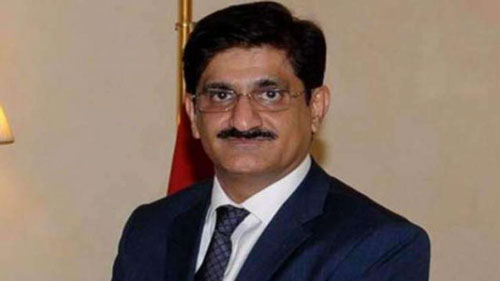Sindh Chief Minister Murad Ali Shah has revealed that the federal government has handed over the management of three major hospitals in Sindh to the provincial administration for 25 years. Despite this agreement, Shah expressed concern over sudden and confusing announcements from the federal authorities, which leave Sindh in an awkward position. Addressing questions about why Sindh has not introduced health cards like other provinces, Shah emphasized the need to improve public institutions rather than directing 50 percent of funds to private sectors through premiums.
During a press conference at the Sindh Assembly, Shah highlighted that his absence from television is due to his focus on work rather than media appearances. He pointed out that the federal government initially resisted transferring the hospitals post-18th Amendment, but when they did, the provincial administration improved the institutions.
“When the hospitals were running well, federal representatives suddenly tried to take control again,” said Shah, noting that at one point, the Sindh government handed over the keys, but federal representatives eventually withdrew. He also shared that Sindh Health Minister Dr. AzraPechuho faced court orders preventing recruitment, with the entire hospital network affected by these stay orders. Shah credited Bilawal Bhutto Zardari with securing a 25-year agreement to keep these hospitals under Sindh’s management. Shah lauded the success of the public-private partnership model in Sindh, a concept initially envisioned by the late Benazir Bhutto. He credited President Asif Ali Zardari with activating the model in 2010, with the Sindh government playing a key role. Shah cited the partnership with Patients’ Aid Foundation at Jinnah Hospital as an example of its success.
Speaking about recent advancements, Shah revealed that Sindh, on the directive of Bilawal Bhutto Zardari, has been covering the operational costs of the CyberKnife machine at Jinnah Hospital since 2018. The latest CyberKnife machine, valued at $4.1 million, was imported despite the country’s dollar crisis. This new equipment, far more advanced than the previous one, will allow patient treatment times to drop from 90 minutes to just 25, quadrupling the hospital’s capacity. Shah proudly stated that Jinnah’s Radiology Department is now one of the top 10 in the world, with its head, Professor Tariq Mahmood, being recognized by the Royal College of Radiologists in the UK. Highlighting the rapid progress in Sindh’s healthcare sector, Shah noted that the bed capacity across the three hospitals has doubled since 2011, with Jinnah Hospital alone increasing from 1,185 to 2,208 beds.
He added that the province aims to add 100 beds each year. During the event, Health Minister Dr. AzraPechuho addressed the growing mental health crisis, announcing that district hospitals will be linked with the Department of Psychiatry and Behavioral Sciences at Jinnah Hospital. She stressed the importance of focusing on hospitals in other districts of Sindh, alongside Karachi.










